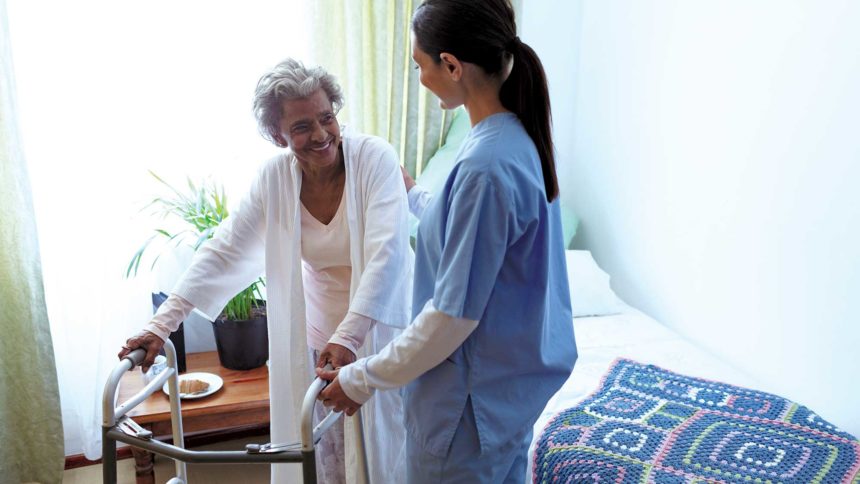
A real-time fall detection system reduced the time residents spent on the ground by 30 minutes, according to a commissioned study published in the June issue of the Journal of Medical Internet Research.
Investigators examined the effect of the SafelyYou Guardian, or SYG, artificial intelligence-enabled video monitoring system in six California memory care communities. SYG was installed with the consent of families in the bedrooms of 66 residents. All participants had a diagnosis of Alzheimer’s disease or related dementias. Their mean age was 87 years.
Falls were video recorded over 10 months, and results were compared between a baseline period when staff members did not yet use the installed equipment and when the system came into use with real-time staff notification. A total of 436 falls were recorded during the study period (including staff-reported falls occurring outside residents’ bedrooms).
The proportion of fallers who spent more than one hour on the ground dropped from 31% at baseline to zero when real-time notification was established, according to the researchers. Time until staff assistance was reduced by 28 minutes. In addition, 77% of fallers received staff assistance in less than 10 minutes, and 55% of fallers spent less than 10 minutes on the ground, they reported.
“Systematic video monitoring of falls and prolonged immobilizations, as well as turning time on the ground into a modifiable risk factor of fall prognosis, are huge milestones in the domain of falls,” said Eléonore Bayen, M.D., a neurologist and researcher for the Global Brain Health Institute. Bayen is an advisory board member of SafelyYou.




